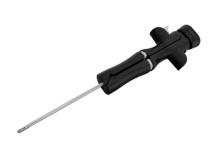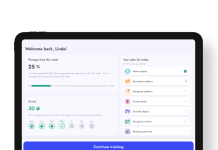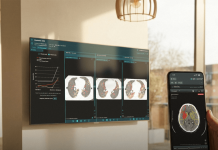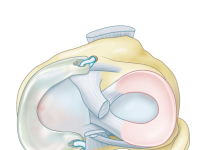Median Technologies has announced that eyonis LCS, its proprietary AI/machine learning powered Software as a Medical Device (SaMD) for lung cancer screening (LCS), met the primary and all secondary endpoints in REALITY, the first of two pivotal studies required for marketing authorisations in U.S. and Europe.
Median’s eyonis LCS SaMD is designed for improving the detection and diagnostic accuracy of low-dose computed tomography (LDCT). LDCT imaging is the standard of care globally and is currently the only approved lung cancer screening modality in U.S. and Europe.
Related: New report supports SciBase’s melanoma detection AI device
Fredrik Brag, CEO of Median Technologies said: “These data met our ambition for improving the performance of LDCT with eyonis LCS. Now, we are even more excited to report the upcoming RELIVE pivotal data and file for marketing authorisations in H1 2025. We believe that broad implementation of LDCT with eyonis LCS has the potential to vastly improve early detection and lead to far more cures, dramatically reducing lung cancer mortality.”
The average five-year survival rate for all lung cancer patients is 18.6 percent because only 16 percent of lung cancers are diagnosed at an early stage. Conversely, Stage 1 lung cancer can be cured when detected, with an 80% survival rate after 20 years, where many die from other causes. For Stage 1A cancers that measure 10 mm or less, the 20-year survival rate has been shown to be 92%.
Consequently, there is tremendous momentum behind efforts in the U.S., Europe and Asia to increase lung cancer screening and improve its accuracy. Enabling the accurate early detection of lung cancer with eyonis LCS could dramatically improve lung cancer survival.
Thomas Bonnefont, COO and CCO eyonis Business Unit said: “The high performances of our device can not only save lives but also prevent healthy patients undergoing unnecessary medical procedures. This will avoid unnecessary distress for patients and reduce healthcare costs.”
Lung cancer screening is recommended by the U.S. Preventive Services Task Force (USPSTF) in adults aged 50 to 80 years who have a 20 pack-year smoking history. The company says the market opportunity includes a population of 14.5 million people in the US alone, currently eligible for a lung cancer screening exam, with an existing potential reimbursement of 650 USD per exam with a SaMD postprocessing for characterisation of malignant vs benign nodules, representing a total addressable annual market of over 9 billion USD.
The eligible U.S. patient number is expected to rise in the coming years says Median Technologies, driven by planned broadening of the eligibility criteria. Similarly, new lung screening program deployments are planned in Europe and Asia. Around 230 billion USD was spent on cancer medical care in 2023 in the US. The vast majority of cancer care costs are incurred in treating advanced cancer patients, versus preventive care such as screening that can save patients’ life.
Results from REALITY show that eyonis LCS can accurately detect and characterise cancerous nodules says the company. The novel SaMD achieved exceptional results, with an area under the curve (AUC) value of 0.904 at patient level versus an AUC of 0.80 – the minimum value set as a primary endpoint for REALITY. Importantly, 80% of the cancers in the analysed cohort of REALITY were difficult-to-diagnose Stage 1 cancers. Moreover, the REALITY cohort was enriched compared to real life with small non-spiculated cancers, and large spiculated benign nodules, both of which are challenging for radiologists to diagnose.
The REALITY study, initiated in July 2023, collected retrospective imaging and clinical data from 1,147 patients from five major cancer centers and hospitals in the US and Europe and two clinical data providers. REALITY evaluated eyonis LCS ability to diagnose lung cancer. The objectives were to assess eyonis LCS standalone performance in characterising cancerous vs non-cancerous patients and in detecting and characterising suspicious versus malignant nodules. The primary endpoint of REALITY was determined after consultation with the U.S. regulatory authorities and the primary endpoint was selected to show that eyonis LCS would achieve an AUC superior to 0.8.
The second pivotal trial, RELIVE, is a Multi-Reader Multi-Case (MRMC) study that will offer clinical validation of eyonis LCS to complement the analytical validation already achieved and communicated today with REALITY. All the patient recruitment and relevant patient clinical data for the RELIVE study have already successfully been collected from the participating sites. RELIVE is scheduled for completion in the coming months, with an anticipated data read-out in Q1 2025 and regulatory filings in H1 2025.




